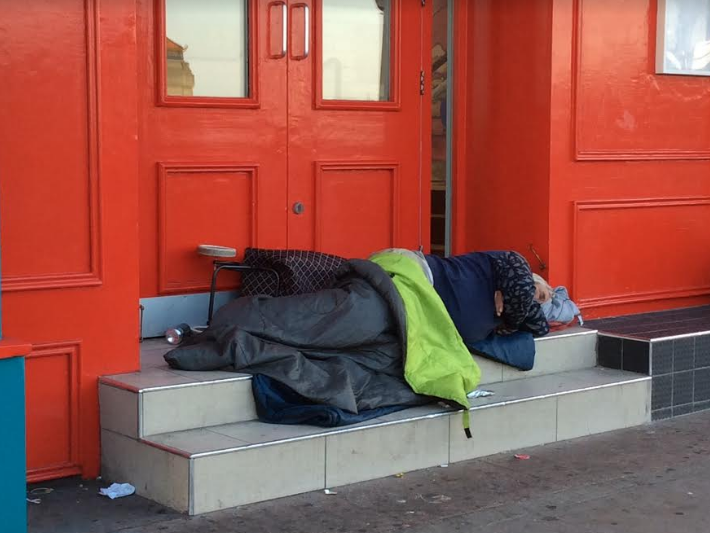Rough sleepers and the homeless look more likely to be given suitable housing in Brighton and Hove after an agreement reached by councillors last night (Wednesday 29 April).
One said that it would make more financial sense, with the current situation proving costly to the public purse.
Members of Brighton and Hove City Council’s Housing Committee voted unanimously for officials to come up with an action plan, timetable and costings.
The aim is to provide homes for rough sleepers and the support that will preventing them from going back on the street.
Members were spurred on by the success in finding temporary shelter for 170 rough sleepers within days after an instruction from the government when the coronavirus lockdown started.
And Green councillor David Gibson said that research by the charity Crisis found that 30 people sleeping rough for a year cost £600,000 in terms of health, medical, substance abuse and prison costs.
He said that a “Housing First” policy, with homeless people given somewhere to live before they commit to medical or social support, would be cheaper – and the council could also receive rent.
Councillor Gibson said: “We need to get this plan and the costings so we can write to the government to request the funds we will need in order to achieve this.
“We need to start acting now because there is a limited window. We have a fantastic opportunity. Let’s all work together and help make Brighton and Hove a beacon for the rest of the country.”
Labour councillor Kate Knight said that the current places for homeless people would “evaporate” as it was only available because of extraordinary circumstances.
Drawing on her experience as a probation officer, Councillor Knight said: “We have bought precious time for a very complicated and sometimes difficult-to-manage cohort.
“We have bought them time when they are not living hand to mouth, wondering where they’re going to be from one day to the next, where they can engage with services and address their problems and their issues.
“Housing First is a proven method to help people in the long term. We set the bar far too high before we allow people into accommodation.”

Labour councillor Peter Atkinson welcomed the move but had concerns about people without a local connection. He said that, when he watched the housing team at work, many homeless people seeking help had come to Brighton despite having nowhere to stay.
Conservative councillor Mary Mears said: “Council policy is for a five-year local connection. We need to include a policy to make sure we are not discriminating against people on the waiting list.”
She asked for a breakdown of how the council had spent the £2.4 million of government money provided to house rough sleepers at this time.
At the start of the coronavirus crisis, the council secured 379 rooms for rough sleepers and people in supported housing who had covid-19 coronavirus symptoms or who were in shared housing and needed shielding.
Labour councillor Gill Williams, who chairs the Housing Committee, said that the council’s level of support had been commended as being among the “highest level in the country”.

She praised volunteers, charity workers and local business for their “tireless” efforts supporting rough sleepers and those in night shelters. They had provided 270 meals a day and delivered other food, toiletries and radios.
Councillor Williams said: “It has been hugely inspiring to see so many organisations brought together to get to where we are.
“It’s a huge effort to keep going every day. Volunteers are working tirelessly and endlessly to keep people safe.”
A report on how to provide suitable “move on” housing, with an action plan, timetable and costings, is due to be prepared before the committee meets in June.







